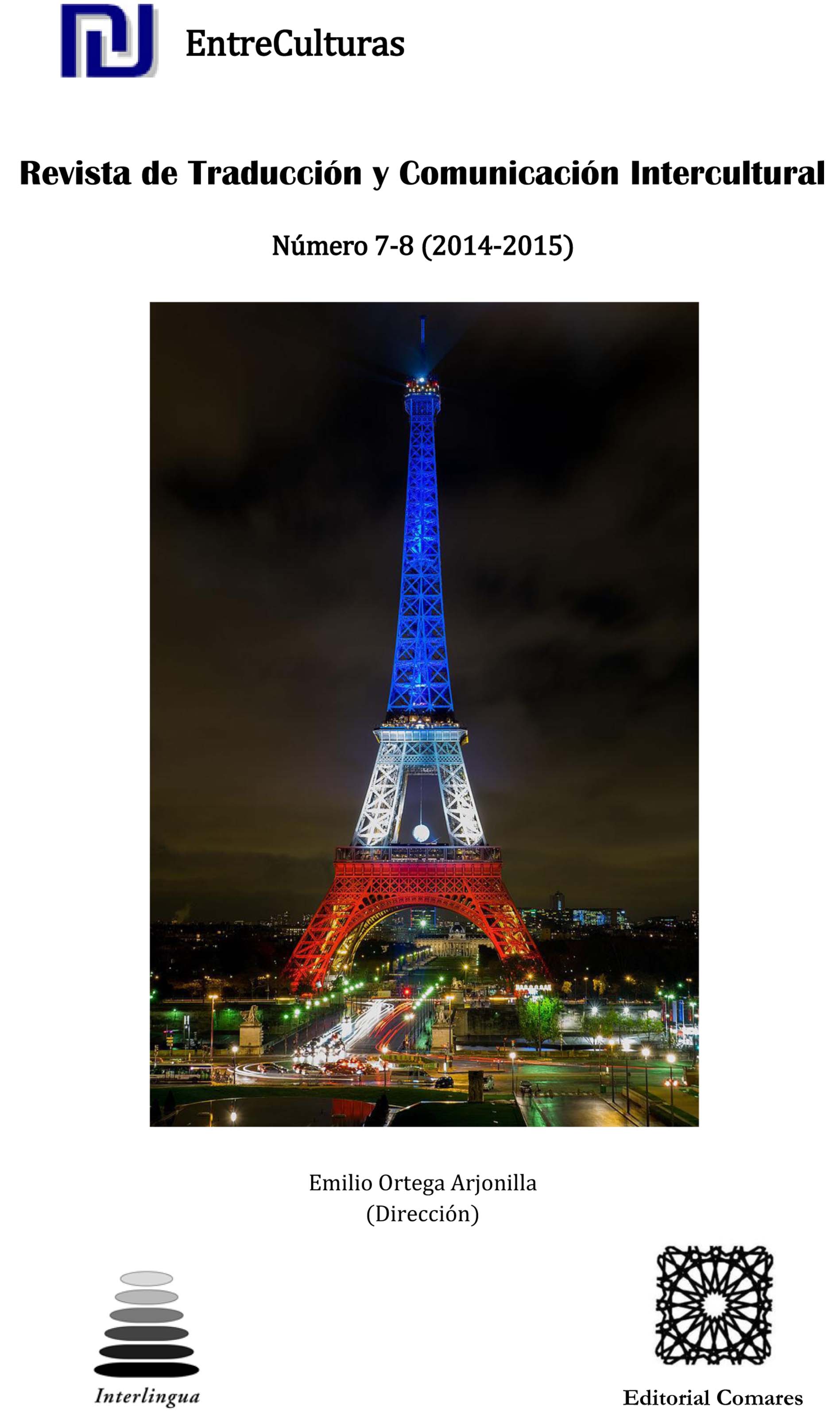LA RETROTRADUCCIÓN DE LA LITERATURA CHINOAMERICANA A LA CULTURA CHINA: ANÁLISIS COMPARATIVO DE LAS VERSIONES CHINAS DE THE JOY LUCK CLUB DE AMY TAN
DOI:
https://doi.org/10.24310/Entreculturasertci.vi7-8.11328Keywords:
back-translation, Chinese American Literature, Amy Tan, domestication, foreignizationAbstract
Amy Tan, a representative author of the Chinese American Literature, succeeded in displaying the wonderful world in which the in-between beings live to the Chinese public. In this article, we will study the back-translation of The Joy Luck Club, Amy Tan’s the most successful novel, to the Chinese culture. By comparing its three Chinese versions, we will analyze the different translational strategies adopted by different translators: either to maintain the distinctiveness of the Chinese American culture in order to make the Chinese readers realize the difference between the traditional Chinese culture and the Chinese American culture or to preserve the purity of Chinese traditional culture, by deleting o correcting the information that isn’t in conformity with it.
Downloads
Metrics
References
Mehrez, Samia (1992). “Translation and the post-colonial experience: the francophone North Africa text” en L. Venuti (ed.): Rethinking Translation: Discourse Subjectivity Ideology. Londres, Routledge, pp. 120-138.
Sales, Dora (2004). Puentes sobre el mundo. Cultura, traducción y forma literaria en las narrativas de transculturación de José María Arguedas y Vikram Chandra. Berna, Peter Lang.
Tan, Amy (1990). Xifuhui. Renrui Yu (trad.). Taibei, Unitas.
Tan Amy (1992). Xifuhui. Qing Tian (trad.). Shenyang, Chunfeng Wenyi Press.
Tan, Amy (1998). The Joy Luck Club. Londres, Vintage.
Tan, Amy (2003). The Opposite of Fate: Memories of a Writing Life. Nueva York, Penguin.
Tan, Amy (2006). Xifuhui. Naishan Cheng (trad.). Shanghai, Shanghai Translation Publishing House.
Tan Amy (2009). El club de Buena estrella. Jordi Fibla (trad.). Barcelona, Planeta, S.A.
Tymoczko, Maria (1995). “The Metonymics of Translating Marginalized Texts” en Comparative Literature, No. 47, vol.1, pp. 11-24.
Tymoczko, Maria (1999). Translation in a Postcolonial Context. Manchester, St. Jerome.
Venuti, Lawrence (ed.) (1992). Rethinking Translation: Discourse Subjectivity Ideology. Londres, Routledge.
Vidal, África (2010). Traducción y asimetría. Frankfurt, Peter Lang.
Downloads
Published
How to Cite
Issue
Section
License
All contents published in Entre culturas. Revista de traducción y comunicación intercultural are protected under the Creative Commons Attribution-NonCommercial-ShareAlike 4.0 International (CC BY-NC-SA 4.0) license. All about this license is available in the following link: <http://creativecommons.org/licenses/by-nc-sa/4.0>
Users can copy, use, redistribute, share and exhibit publicly as long as:
- The original source and authorship of the material are cited (Journal, Publisher and URL of the work).
- It is not used for comercial purposes.
- The existence of the license and its especifications are mentioned.
There are two sets of authors’ rights: moral and property rights. Moral rights are perpetual prerogatives, unrenounceable, not-transferable, unalienable, imprescriptible and inembargable. According to authors’ rights legislation, Entreculturas. Revista de traducción y comunicación intercultural recognizes and respects authors moral rights, as well as the ownership of property rights, which will be transferred to University of Malaga in open access. The property rights are referred to the benefits that are gained by the use or the dissemination of works. Entreculturas. Revista de traducción y comunicación intercultural is published in an open access form and it is exclusively licenced by any means for doing or authorising distribution, dissemination, reproduction, , adaptation, translation or arrangement of works.
Authors are responsable for obtaining the necessary permission to use copyrighted images.





7.png)
